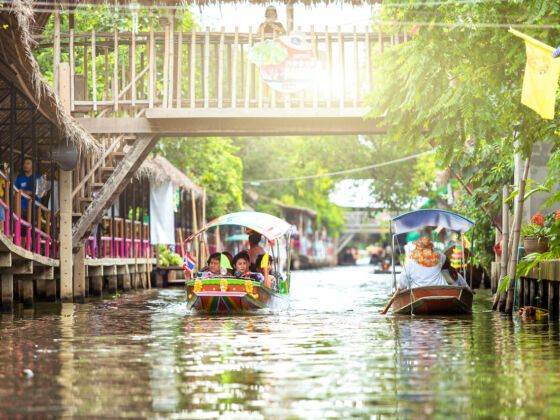1. Assuming Thailand means “third world.”
While over 50% of Thailand’s population lives in rural areas and makes a meager living growing rice and other crops, there are totally modern cities like Phuket, Chiang Mai, and Bangkok with plenty of skyscrapers, rooftop bars, 5-star hotels, world-class hospitals, prestigious international schools and universities, gourmet restaurants with Michelin-starred chefs, multiple systems of public transportation, and a wealthy class of citizens. All this said, my friends are still convinced I sleep on a bamboo mat and eat fried crickets.
